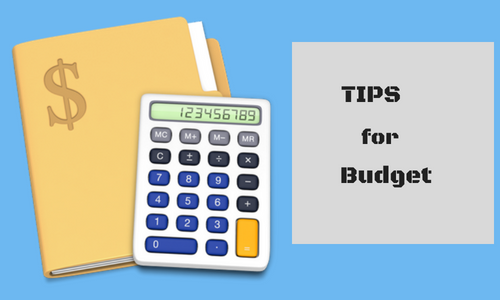Startup entrepreneurs find it hard to maintain the longevity of their businesses. Even after using all the necessary tools and techniques, still, they ran out of money, resulting in an unwanted shutdown. There are multiple businesses starting and failing within a span of few months only because of bad budget management. Failure can be a result of bad marketing, failed strategy, and bad pricing or even a poorly developed item. The common reason has to be the bad business budget. So, there are 7 simple yet essential steps available, used for drawing up budget proficiently for helping your business grow.
Essential tips to follow:
Right from minimizing unexpected cash flow to control spending, there are so many essential tips and plan to create a budget. So, without wasting time any longer, head towards the right top 7 tips now!
- Research your costs:
You have to research your business cost to avoid getting hit by unexpected expenses. These unexpected expenses will not just get you out of a track but will make it difficult to accomplish your goal. If your budget has been set for a certain cost and you later realize that you need more money that will reduce the profit made on sales. It will put your business in a bad position. You have to determine ways to increase profit and revenue to offset higher expenses. So, before you start operating your business, your budget needs to be created beforehand for variable and fixed costs.
2. Tally income sources:
The major element of running good business budget is checking out money you bring in your firm on a monthly scale. You can head off with your sales figures by using the profit and loss report. After that, you have to go further by adding some extra income sources you might need for successfully running your business. A proper business budget will help in making rooms for you to accommodate things you need for growing your firm.
3. Questions to ask clients:
After you have done your task of a detailed breakdown of cost involving projects, head towards clients and clarify more about the project. Office costs travel expenses and more; you have to discuss it all. You need to discuss these points before you even create a quote. Remember to double check exact specifications of the brief before finalizing on a quote. This schedule might have the impact on costs. In case the deadline is tight, contracting some more freelancers might make the task expensive. So, remember to ask about timescales before agreeing on anything. You might further ask clients if they want a breakdown of cost.
4. Determine your fixed costs:
Fixed costs are described as expenses, which are charged the same every month. So, incorporating these points is the easiest way to create the preferred business budget. For that, start reviewing your past bank statements or any other business budget reports, if you have any. This will help you to spot fixed bills easily and the total amount of fixed rates cost you daily.
5. Checking on variable expenses:
The items without any fixed price tag are known as variable costs, with flexible changes every month. Most of these purchases can be scaled down or up, depending on current business state and using monthly profit. The profit each month will be determined by your earnings left after paying all selected costs. So, if your current business can perform better than expected, try using that extra revenue for increasing variable spending. This step will help your business to grow faster and expand within few years’ time.
6. Figuring gross margin profits:
Gross margin profit mainly indicates financial health of a business. Gross margin profit is money left after the cost of doing business is paid off. Sometimes, you fail to realize the amount to use for operating your business, leading to wastage of money on services and products, which don’t have any effect on business beyond costing you more money.
So, it is highly advisable to start analyzing business operations completely for discovering the expenses to be eliminated. For that, you have to list all costs of sold out goods, subtract costs from entire sales revenue, and consider entire business versus individual departments. It helps to create a budget for business without any extra unwanted costing addition to it.
7. Predict your one-time investment:
If you can create a proper business budget, you can factor one-time purchases better. Even though some items might come unexpectedly, but others can be well budgeted in advance for months. It helps in protecting your business from any financial burden if you are going through.
It is advisable to use your own knowledge while establishing a business budget. You can try checking on the tips, but using your independent knowledge can help your business big time. It is important to know more about your company, your set budget and your goals first, before finalizing any result.











